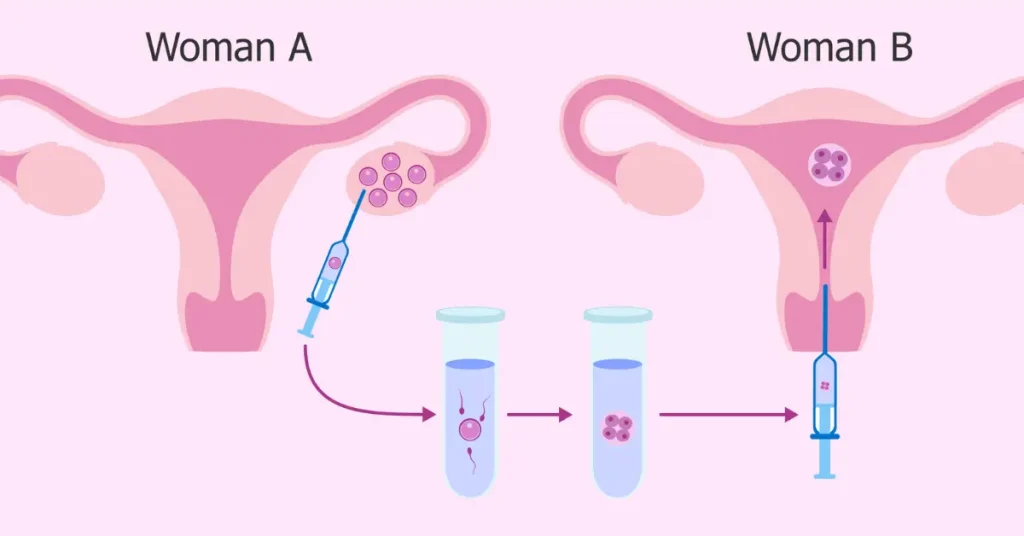Surrogacy remains a topic that is often discussed in various debates and discussions around the world. While few talk against it, there are many more putting their perspectives in its favor all the time. Also, within the domain of family planning and assisted reproduction techniques, surrogacy stands as a disputable and complex issue that many nations hook with. China, with its high populace and special social elements, has taken a firm position against surrogacy, forcing a boycott that reflects profound social, ethical, and legal aspects. This article digs into the reasons behind China’s disallowance of surrogacy, investigating the multifaceted suggestions of this choice.
Surrogacy and the cultural beliefs of China
 Surrogacy has always been unable to find its place in the social and cultural communities within China. That said, one of the key reasons for China’s boycott of surrogacy is established in ethical and social concerns. Moreover, the Chinese government sees surrogacy as a practice that commercializes women’s bodies and the birth process, decreasing it to a value-based relationship. There’s a fear that surrogacy can lead to abuse, especially of financially impeded women who may feel compelled to turn into surrogates in need of monetary support. This concern adjusts with broader moral talks about encompassing surrogacy around the world, where the welfare and independence of surrogate moms are major issues.
Surrogacy has always been unable to find its place in the social and cultural communities within China. That said, one of the key reasons for China’s boycott of surrogacy is established in ethical and social concerns. Moreover, the Chinese government sees surrogacy as a practice that commercializes women’s bodies and the birth process, decreasing it to a value-based relationship. There’s a fear that surrogacy can lead to abuse, especially of financially impeded women who may feel compelled to turn into surrogates in need of monetary support. This concern adjusts with broader moral talks about encompassing surrogacy around the world, where the welfare and independence of surrogate moms are major issues.
In addition, surrogacy challenges conventional Chinese values related to family and parenthood. In Chinese culture, there’s a strong accentuation on blood connection and hereditary ancestry. Surrogacy, particularly when it includes donor eggs or sperm, complicates these ideas of heredity and legacy, raising questions about the social and familial status of children born through such courses of action. The government’s position reflects a need to protect conventional family structures and social standards, which are seen as fundamental to societal agreement and steadiness.
Surrogacy and its clash with various legalities
The Chinese laws have never found it comfortable with the surrogacy process in China. That said, the legal and administrative scene around surrogacy presents another noteworthy challenge. Earlier to the boycott, China needed comprehensive laws particularly addressing surrogacy, driving to a legal gray zone where the practice may go unchecked. Also, this lack of clear directions made it troublesome to secure the rights of all parties, including the surrogate moms, the intended parents, and the children born from surrogacy programs.
By implementing a ban, the Chinese government pointed to avoiding potential legal debate and complications that seem to emerge from surrogacy agreements, such as custodial issues or clashes over parental rights. The choice to forbid surrogacy also reflects the government’s broader approach to directing reproductive advances and family planning, emphasizing control and oversight to guarantee practices adjust with societal values and legal standards.
Surrogacy and population control practices
There is no denying that China once stayed as the most populated country, with India recently overtaking it. That said, China’s verifiable setting of populace control measures, most eminently the one-child approach, has also affected its position on surrogacy. Whereas the one-child policy was formally brought in 2015, allowing families to have two children, the government remains watchful regarding overseeing populace development and demographic balance. In this setting, surrogacy is seen with caution, because it might possibly empower people to bypass family planning arrangements and have more children than the policy allows.
Also, the boycott on surrogacy is in this way a part of a broader exertion to control these practices and guarantee they are in line with national population control practices. By confining surrogacy, the government points to preserving oversight of birth rates and statistic patterns, considering the long-term social and financial suggestions of populace development.
Even though there isn’t any direct connection between surrogacy and population control, the government does hold such a perspective. While this is not verifiable, there is a need for proper research and analysis in the same regard.
Surrogacy and concerns regarding public health
The importance of health and safety concerns in China has technically pushed the government to prohibit surrogacy practices. Moreover, health and safety concerns also play a part in China’s denial of surrogacy. We know that the surrogacy process includes complex medical procedures, including in vitro fertilization (IVF) and embryo transfer, which carry certain risks for both the surrogate mother and the child. Without proper controls and oversight, there’s a risk that surrogacy practices may compromise the health and well-being of those included.

While there isn’t enough proof for the same, the government thinks that surrogacy may pose some risks to the health of the surrogate mothers. Also, they think that surrogate mothers may be careless regarding their health while going for commercial surrogacy agreements. All these factors have pushed the government to introduce such stern laws and regulations for surrogacy in the country.
By forbidding surrogacy, the Chinese government looks to protect people from potential medical complications and guarantee that assisted reproductive treatments are utilized in a way that prioritizes safety and ethical considerations. This approach reflects a broader commitment to safeguarding public health and guaranteeing that new medical innovations are utilized capably and morally.
Final words
China isn’t in the mood to legalize surrogacy anytime soon. So, we must say that the intended parents may look for other alternatives around the world. Also, China’s boycott of surrogacy is supported by its concepts around health and well-being concerns. Moreover, the choice reflects a complex interaction of variables, including the urge to secure helpless people from abuse, protect conventional family values, guarantee legal clarity, oversee populace development, and protect public health. Whereas the boycott on surrogacy has started getting protests and discussions, it underscores the challenges that nations confront in controlling assisted reproductive techniques in a way that every person looks for parenthood with broader societal and moral contemplations.
As medical innovations proceed to advance and become more open, the wrangling over surrogacy and its place in society is likely to continue. China’s position on surrogacy may serve as a reference point for other nations exploring comparative issues, highlighting the significance of cautious thought and control of practices that have significant suggestions for people, families, and society at large.















